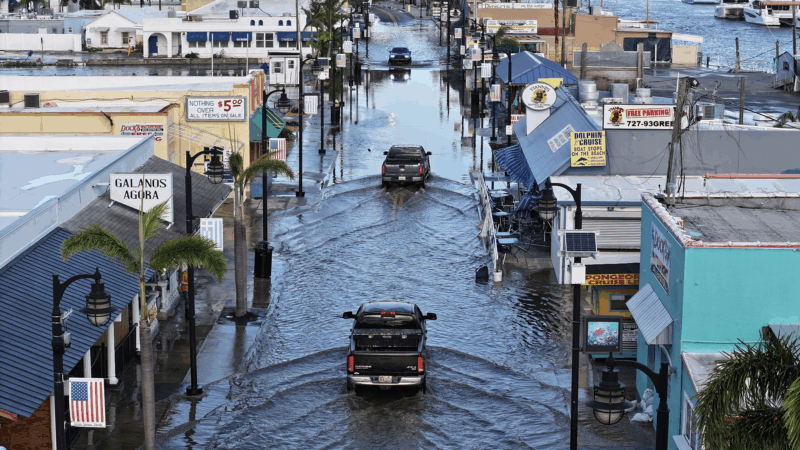White House dismisses authors of major climate report
The Trump Administration has dismissed the scientists working on the country’s flagship climate report, a move that threatens to curtail climate science and make information about global warming less available to the public.
The National Climate Assessment is the most trustworthy and comprehensive source of information about how global warming affects the United States. It answers common questions about how quickly sea levels are rising near American cities, how much rain is normal for different regions and how to deal with wildfire smoke exposure.
The assessment is mandated by Congress, and its sixth edition was supposed to be released in late 2027. About 400 volunteer authors had already started work. They included top scientists as well as economists, tribal leaders and climate experts from non-profit groups and corporations.
On Tuesday, the authors received an email releasing them from their roles, and saying “the scope of the [National Climate Assessment] is currently being reevaluated.”
The White House did not respond to questions about why the authors were dismissed or what elements of the report’s scope are being reassessed.
“I think the reason that Americans should be upset, and should be concerned about this decision, is because it’s more than just a report,” says Dave White, a sustainability researcher at Arizona State University who has worked on two previous editions of the National Climate Assessment.
The assessment is widely used by everyone from city planners to farmers to judges. “For example, city water utilities [use it] as they prepare to address the impacts of sustained drought,” White says. And “it informs elementary schools as they develop heat mitigation plans to reduce the risks of extreme heat on children.”
The last edition of the climate assessment, which was released in late 2023, also included an online atlas that allowed anyone to zoom in and see how climate change will affect their local community.
“It’s important to understand what and who is at risk,” explains Rachel Cleetus of the Union of Concerned Scientists, one of the authors who was dismissed. “Not just in a general sense, but in a very localized sense. Without that information, we’d be flying blind.”
For example, Cleetus was supposed to work on the assessment chapter about sea level rise and other coastal effects of a warmer planet. Sea level rise is accelerating overall, but the water is rising radically different amounts in different cities around the U.S.
Congress requires that the National Climate Assessment come out every four years, although it has not always been published on time under previous Republican administrations. In 2008, the George W. Bush administration released an edition of the assessment four years late, and only after it was compelled to do so by a lawsuit.
And there were signs even before President Trump took office that his administration might seek to undermine the latest edition of the assessment. Russell Vought, who now leads the White House Office of Management and Budget, previously advocated for major changes to the office that oversees the National Climate Assessment.
Pentagon says it’s cutting ties with ‘woke’ Harvard, ending military training
Amid an ongoing standoff between Harvard and the White House, the Defense Department said it plans to cut ties with the Ivy League — ending military training, fellowships and certificate programs.
‘Washington Post’ CEO resigns after going AWOL during massive job cuts
Washington Post chief executive and publisher Will Lewis has resigned just days after the newspaper announced massive layoffs.
In this Icelandic drama, a couple quietly drifts apart
Icelandic director Hlynur Pálmason weaves scenes of quiet domestic life against the backdrop of an arresting landscape in his newest film.
After the Fall: How Olympic figure skaters soar after stumbling on the ice
Olympic figure skating is often seems to take athletes to the very edge of perfection, but even the greatest stumble and fall. How do they pull themselves together again on the biggest world stage? Toughness, poise and practice.
They’re cured of leprosy. Why do they still live in leprosy colonies?
Leprosy is one of the least contagious diseases around — and perhaps one of the most misunderstood. The colonies are relics of a not-too-distant past when those diagnosed with leprosy were exiled.
This season, ‘The Pitt’ is about what doesn’t happen in one day
The first season of The Pitt was about acute problems. The second is about chronic ones.







